Certain tasks commonly occur as part of a constitution-making process. However, each constitution-making process is different and each process will have its own set and sequence of tasks, depending on the context.
Primer
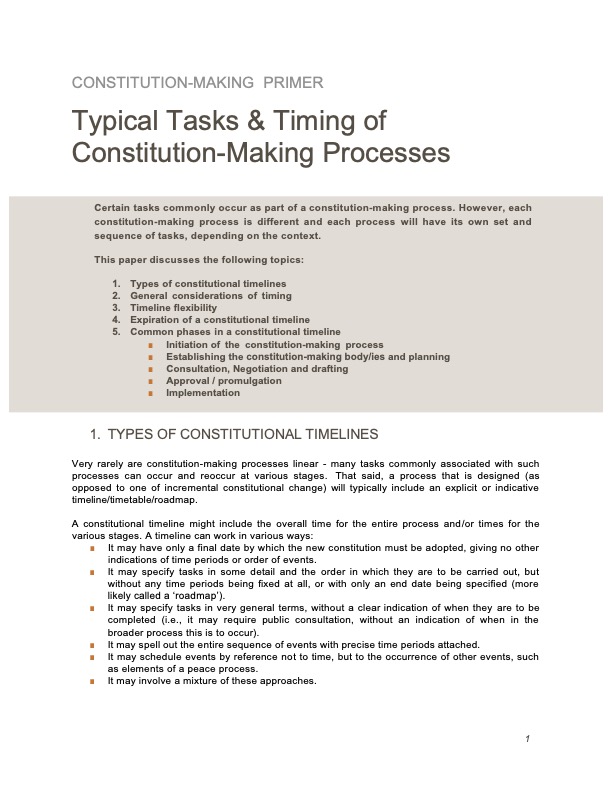
Sample Materials
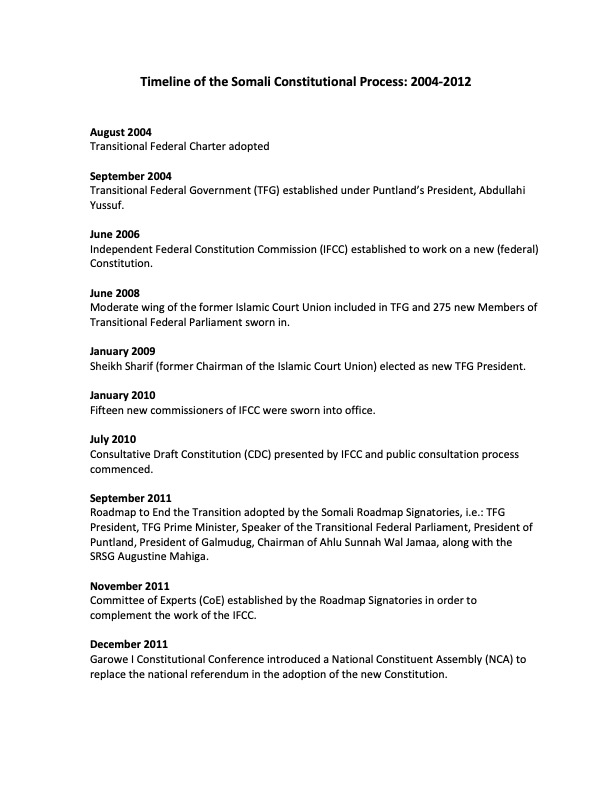
This document describes the timeline of the constitutional process between 2004 and 2012. A Provisional Constitution was adopted in 2012. Keywords: Process Overview, Timeline/ Timetable (Sample), Process, Example.
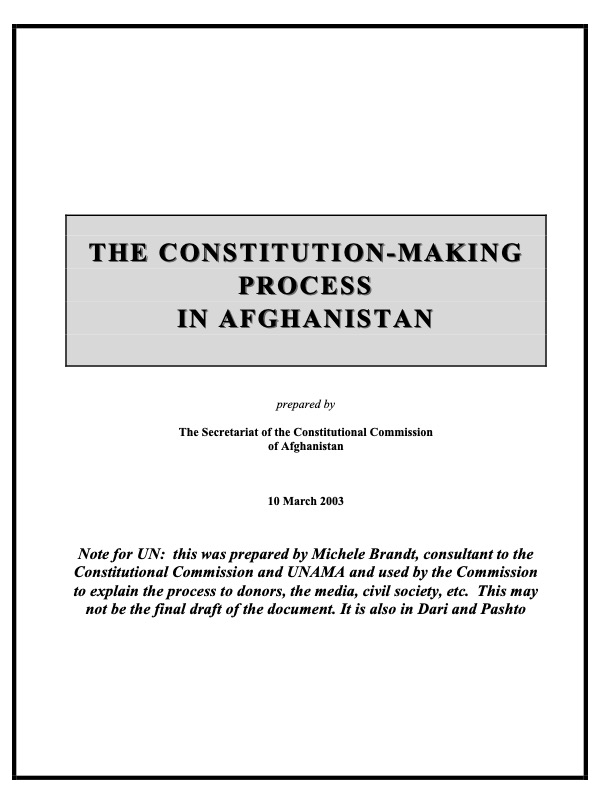
This is a UNAMA draft of a document that explains the composition and responsibilities of the Drafting Commission, the Constitutional Commission and the Constitutional Loya Jirga in Afghanistan. It more specifically discusses the Secretariat of the Constitutional Commission, and its role in supporting these three constitution-making bodies. Lastly, it sets out the Secretariat''s timeline and work plan with respect to the constitution-making process.
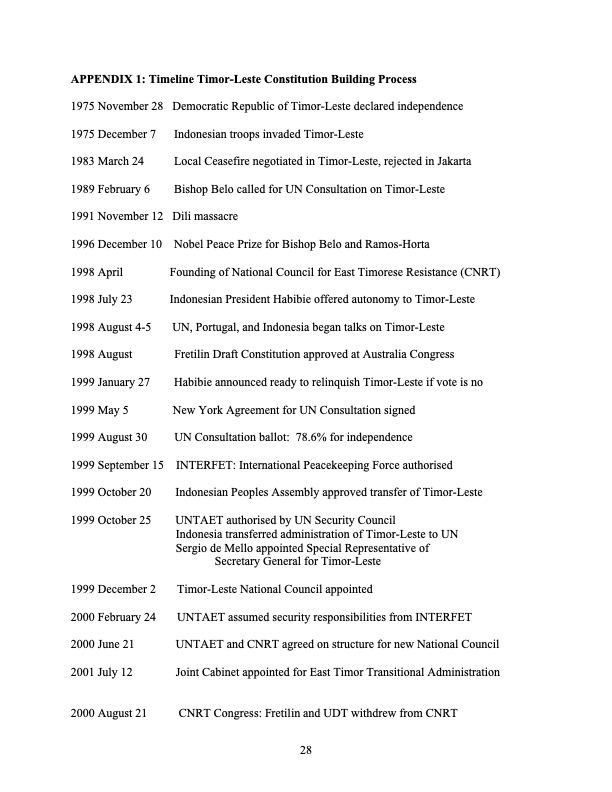
This is a timeline of the constitution-making process in Timor-Leste which led to the 2002 constitution.
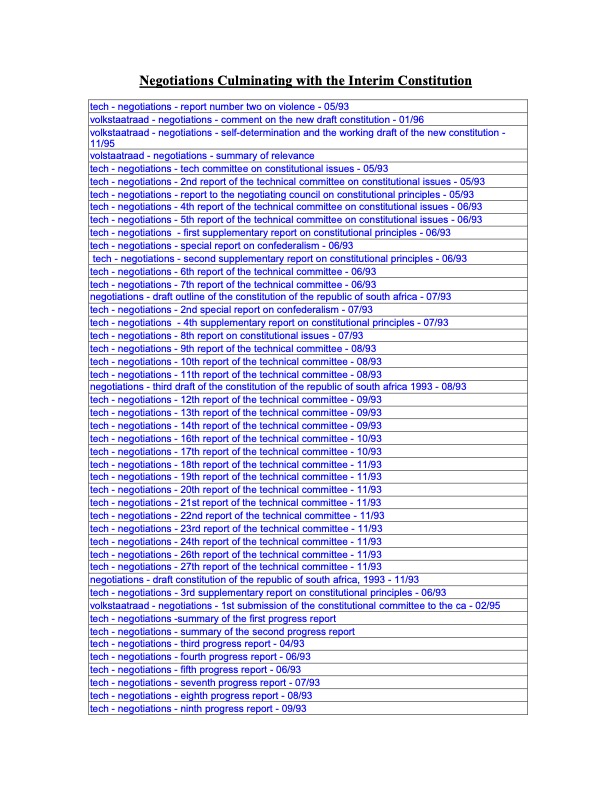
This document provides a timeline of the various negotiations which led to the interim constitution being adopted in 1993. Keywords: Timeline (Sample), Timetable (Sample), Sequence, Sequencing, Negotiation.
Further Reading
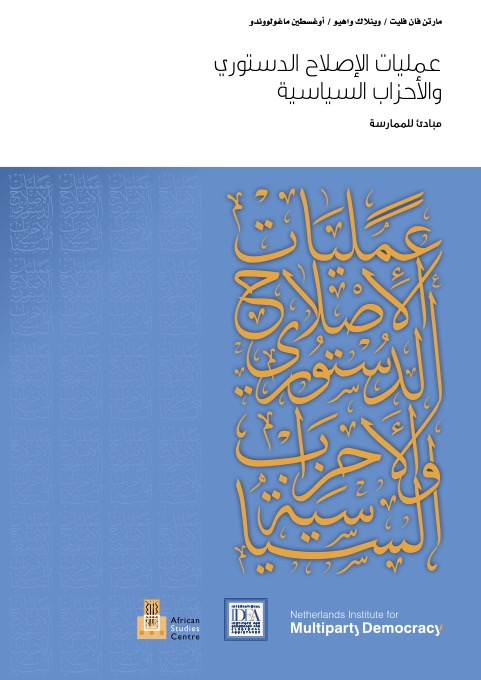
This document explores the constitutional reform processes and political parties. The paper (1) discusses the guiding principles applicable to the different phases of constitutional reform (2) examines the importance of the constitution in delineating the relationship between the state and its people, and making clear the role political parties can play in defining this relationship and (3) dives deeper into this issue by exploring to contributions of political parties, as representatives of the people in a state, to the legitimacy of a constitution or the constitution-reform process. To illustrate the role of political parties in the constitution-making or reform processes, the paper looks at a series of case studies, namely Bolivia, Ghana, Indonesia, Iraq, Kenya, Malawi, Zimbabwe, and South Africa. The case studies illustrate the uniqueness of every constitutional process, but the last section of the paper breaks the constitution reform process into basic phases, and sets out basic characteristics and issues to consider for each.
